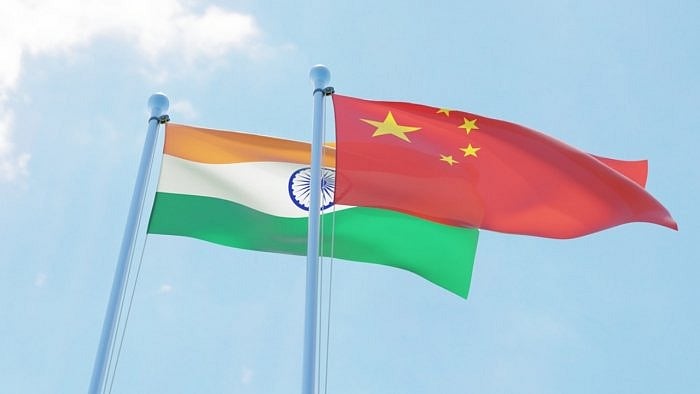
Beijing on Friday cited market factors to virtually dismiss New Delhi’s call for interventions to keep stable the prices of the ventilators, oxygen concentrators and other medical equipment being procured commercially from China to contain the raging second wave of the Covid-19 pandemic in India.
The market factors like supply and demand determine prices of products, an official of the government of the communist country said, responding to the recent call by Consul General of India in Hong Kong, Priyanka Chauhan, to the Chinese Government for interventions to lower the soaring prices of medical equipment.
“Taking oxygen concentrators as an example, one reason (for soaring prices) is that the increase in demand affected global supply chains,” Hua Chunying, the spokesperson of the Ministry of Foreign Affairs of the Chinese Government, said in Beijing. She added that production capacity of medical equipment manufacturing companies in China had also been affected due to shortage of raw materials to be imported from Europe.
“What's more, Indian buyers usually make the same demand through various channels and sometimes buy products through different channels. This has overly inflated demand, which has to some extent affected market order and pushed up prices,” Hua said, when a journalist asked for her comment on Chauhan’s request to the Chinese Government for intervention to keep the supply chain open and product prices stable.
“What I would like to say is that our expectation at this point is that the supply chain should remain open and product prices should remain stable,” Chauhan told the South China Morning Post published from Hong Kong.
A number of foreign nations came forward to support Prime Minister Narendra Modi’s government in New Delhi in containing the second wave of the Covid-19 pandemic, which wreaked havoc across India. New Delhi, however, did not accept any aid from Xi Jinping’s government in Beijing, as the bilateral relations hit a new low over the one-year-long military stand-off along the disputed boundary between the two neighbouring nations in eastern Ladakh.
But India’s commercial entities have been buying medical equipment from China in large numbers over the past few weeks.
“Even if there is a little bit of supply demand pressure, there has to be some stability and predictability to product prices. And there has to be a sense of governmental level support and efforts. I don’t have the information as to how much influence the Chinese government can have in this matter but if they can, then it would be welcome,” the Consul General of India in Hong Kong was quoted by the South China Morning Post.
Hua said that China had last month exported to India over 26,000 ventilators and oxygen concentrators, over 15,000 patient monitors and nearly 3,800 tons of medicinal materials and medicines. “Relevant Chinese companies have received Indian orders for over 70,000 oxygen concentrators and are working around the clock to deliver them as soon as possible,” she told journalists during a routine media briefing in Beijing. “In addition, India has a strong demand for vaccines raw materials including auxiliary materials. Since the beginning of this year, relevant Chinese enterprises have provided more than 10 tons of such materials to India with more than 20 tons expected to be delivered soon.”
She said that the Chinese Government had been encouraging and guiding the commercial enterprises of the communist country to work in a cooperative manner to facilitate India's purchase of all kinds of medical equipment and medicines required to deal with the situation. “As far as I know, many Chinese companies and civil institutions are taking actions and providing various kinds of assistance to the Indian side in their own ways.”
The Red Cross Society of China (RCSC) donated to its counterpart in India 100 oxygen concentrators, 40 ventilators and other medical equipment. The RCSC also decided to provide $1 million in cash assistance to the Indian Red Cross Society through the International Federation of Red Cross and Red Crescent Societies to help New Delhi to deal with the second wave of the Covid-19 pandemic.
Hua on Friday said that the Chinese Government’s authorities had been facilitating the customs clearance and transportation of relevant supplies sent to India from many cities across the communist country.
“We agree with the remarks by the Consul General of India in Hong Kong that supply chains should remain open and stable,” she said. “We hope all parties can take concrete actions to ensure that the global industrial and supply chains are stable and open. No one should intentionally disrupt and undermine the openness and stability of the global supply chains out of political agenda.”
Beijing on May 5 last expressed concern over New Delhi’s decision to keep China’s Huawei Technologies Company and the ZTE Corporation out of the 5G trials in India.
The Department of Telecommunications (DoT) of the Government of India on Tuesday gave its go-ahead to several firms to conduct a six-month-long trial of the 5G technology. But Huawei and ZTE were kept out of the trial.
In the wake of the stand-off between the Indian Army and the Chinese People’s Liberation Army (PLA) along the Line of Actual Control (LAC) in eastern Ladakh, New Delhi banned the use of several apps linked to the companies based in the communist country.

